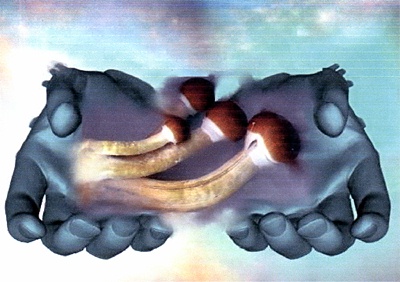All Nonfiction
- Bullying
- Books
- Academic
- Author Interviews
- Celebrity interviews
- College Articles
- College Essays
- Educator of the Year
- Heroes
- Interviews
- Memoir
- Personal Experience
- Sports
- Travel & Culture
All Opinions
- Bullying
- Current Events / Politics
- Discrimination
- Drugs / Alcohol / Smoking
- Entertainment / Celebrities
- Environment
- Love / Relationships
- Movies / Music / TV
- Pop Culture / Trends
- School / College
- Social Issues / Civics
- Spirituality / Religion
- Sports / Hobbies
All Hot Topics
- Bullying
- Community Service
- Environment
- Health
- Letters to the Editor
- Pride & Prejudice
- What Matters
- Back
Summer Guide
- Program Links
- Program Reviews
- Back
College Guide
- College Links
- College Reviews
- College Essays
- College Articles
- Back
Rhetorical Effectivity of Einstein's Response
January 24, 1936
Dear Phyllis,
I have tried to respond to your question as simply as I could. Here is my answer
Scientific research is based on the idea that everything that takes place is determined by laws of nature, and therefore this holds for the actions of people.
For this reason, a research scientist will hardly be inclined to believe that events could be influenced by a prayer, i.e., by a wish addressed to a supernatural being.
However, it must be admitted that our actual knowledge of the laws is only imperfect and fragmentary, so that, actually, the belief in the existence of basic all-embracing laws in Nature also rests on a sort of faith.
All the same this faith has been largely justified so far by the success of scientific research.
But, on the other hand, everyone one who is seriously involved in the pursuit of science becomes convinced that a spirit is manifest in the laws of the Universe – a spirit vastly superior to that of man, and one in the face of which we with our modest powers must feel humble. In this way the pursuit of science leads to a religious feeling of a special sort, which is indeed quite different from the religiosity of someone more naïve.
I hope this answers your question.
Best wishes,
Yours,
Albert Einstein
How rhetorically effective do you find Einstein’s response?
The rhetorical affectivity of Albert Einstein’s response to the young student can be measured in the criteria it reaches for logos, pathos, and ethos. Rhetorical effect in language is the composed means of communication between an orator, their subject, and the audience to whom the speaker presents its subject. This document, a primary source, is a letter written by sixth-grade Phyllis Wright in 1936, in which she inquires Einstein about the spirituality of scientists, “as to whether scientists pray, and is so, what they pray for.”
Logos, Latin relating to reason and rational thought, and Greek etymology for “embodied thought”, is a persuasion based on logic, emphasizing importance on main idea, specific details, and testimony. Einstein supplies logos with a counterargument,
“Scientific research is based on the idea that everything that takes place is determined by laws of nature, and therefore this holds for the actions of people.” Einstein acknowledges the controversy for research scientists between the scientific and the Sacred. By expressing this statement, he appears to concede with atheist scientists, whose opinions support the Laws of nature. Yet, rather than defragmenting his pivotal opinion, he supports his own statement by implying that he has given consideration to this thought-provoking debate, and thus avoids dogmatic bias.
Ethos is the expression of character, determining trust within the significance of knowledge, sincerity, and common identification. Though Einstein is a Nobel-prize winning scholar, through his syntax, Einstein can set him himself on a mundane ground, or page, with Phyllis Wright by evading pretentious parisology. He uses prosaic slang, which the average mind can understand, and therefore appreciate. “It must be admitted our actual knowledge of these laws is only imperfect and fragmentary.” Circuitously, by using words such as “we” and “our”, in his analysis he maintains ethos by establishing himself as a person, who is too, limited and curious in the matter of science and spirituality.
Pathos is the last aspect of rhetorical thought, a stimulus of emotional influence. Pathos can be often a finicky means of persuasion; too much pathos- too much emotion can be interpreted as polemical propaganda. Einstein inspires a wonder and respect for both science and religion, both of which is converged through Einstein’s combined reverence of each.
“In this way the pursuit of science leads to a religious feeling of a special sort, which is quite different from the religiosity of someone more naïve.”
Einstein transfers the focus of his answer from the Laws of nature to the Laws of the universe, a word that ascends to an emotional state of awe in the ambiguity of his figurative language.
As to the pivotal question of Albert Einstein’s use of rhetoric in logos ethos, and pathos, “I hope this answers your question.”

Similar Articles
JOIN THE DISCUSSION
This article has 0 comments.
